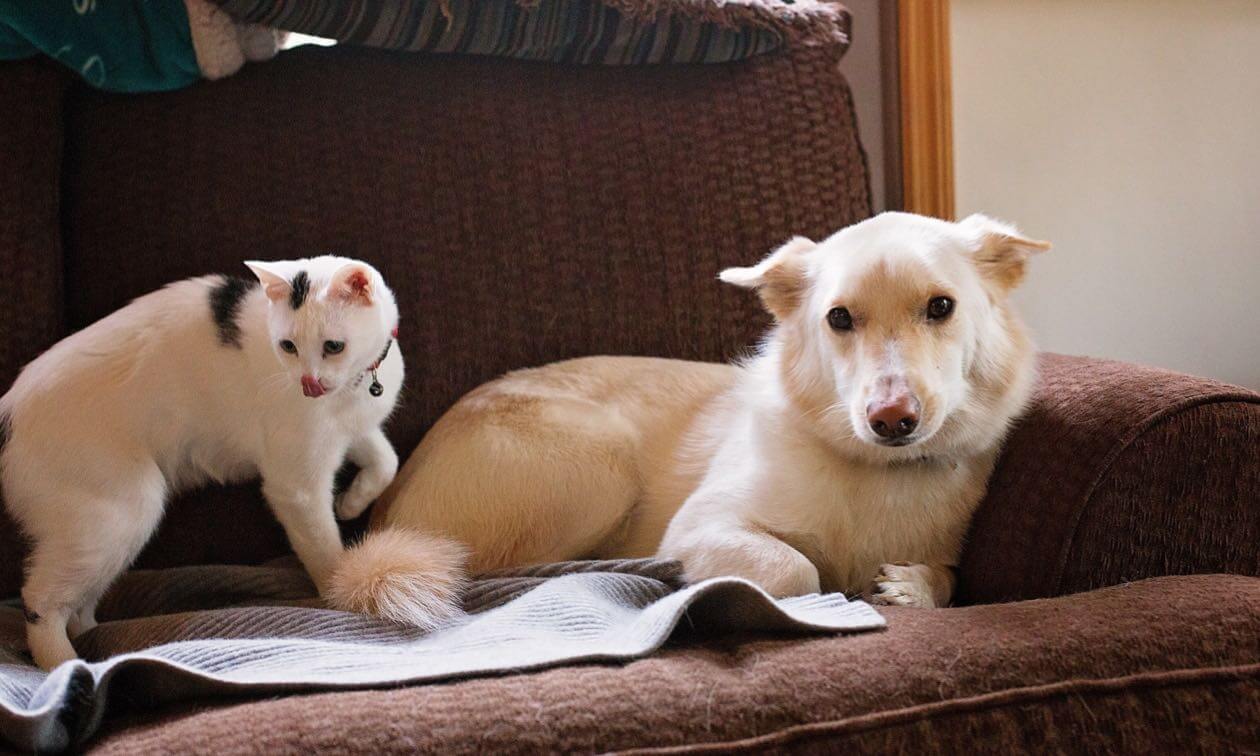Whether you’re renting an apartment or a house, it’s important to consider how your furry family members fit into the picture. Most rentals come with rules and regulations around the type of pets they allow, how many, what happens if they cause damage, and more. With the stress of moving into or out of a rental, the last thing you want is an unexpected issue or expense. That’s why it’s essential to plan ahead and know what questions to ask when renting with pets
Why Don’t All Rentals Allow Pets?
You may know your dog or cat is an absolute angel, but rental agencies and landlords must plan for all scenarios. You’ve probably known a pet or two in your time that did some damage to their home — that’s what landlords are trying to protect against. Even something as simple as a cat scratching the carpet or a dog scratching at the door can mean a big expense when you move out. Loud pets can upset other residents. Believe it or not, some people even leave pets behind when they move. All of this can make landlords leery of allowing pets. But there are still lots of rental options out there for pet parents. Just be prepared for some fees.
Questions To Ask Your Landlord About the Rules for Pets
Most rental properties are upfront about their pet policies and all associated fees. If you don’t see this information, be sure to ask.
- Do you accept pets?
- Do you have species, breed, or size limitations? Some rentals will only allow cats, others only dogs. They may limit dogs over a certain size or weight. Some breeds may not be allowed at all.
- How many pets are allowed in my rental unit? You may find just one or two pets are accepted.
- What is the upfront pet deposit? Most rentals charge a fee for pets to cover any damage they find when you move out.
- How much of the upfront pet deposit is refundable? Sometimes, a portion or all of the pet deposit will be refunded to you when you move out as long as your pet hasn’t done any damage.
- Do you charge a monthly pet rent? Some rentals add a small fee to your monthly rent based on the number of pets you have. This is generally non-refundable.
- Am I required to have additional renter’s insurance for my pet?
- Do you require any documentation for my pet, such as proof of obedience training, vaccination records, or proof of veterinary examination?
- Are areas of the building or grounds off-limits to pets?
- When property staff need to enter my unit, will they know I have pets? In case of a scheduled or emergency entry to your rental, especially when you aren’t home, it’s important the staff knows you have pets. You don’t want your cat slipping out the door or your dog thinking someone is breaking in.
- Will I be allowed to participate in the move-out walkthrough to look for pet damage? When you move out, your landlord will do a walkthrough of the rental to note any damage. This includes damage done by your pet. It can be helpful to be part of that walkthrough so you can discuss any findings or associated costs you disagree with.
Tips to Keep Your Pet from Damaging Your Apartment or Rental Home
Protect Areas Your Pet May Damage
If, for example, your dog scratches at doors or your cat scratches the carpet, be prepared. Before they can do any damage, protect those spots. You can get clear plastic wall and door covers, plastic carpet runners, double-sided pet tape, and other protections to keep everything looking great.
Prepare Your Pet
If you’re moving into a smaller space that may be stressful for your pet, work with them ahead of time on being comfortable with less room to roam.
If they’re used to always having outdoor access which won’t be available in the rental, consider gradually reducing their access in the months before your move. This way, they won’t be stressed by a sudden change.
Provide Appropriate Potty Opportunities
Avoid damage to carpets and hard-surface floors by giving your dog plenty of walks so they can eliminate when they need to. Some early potty and crate training can help! If necessary, consider whether potty pads or real-grass indoor potty areas would help prevent damage to the flooring in your rental.
If your cat has issues with house soiling, consider working with a feline behavior consultant and your veterinarian to identify and resolve the problem.
Accidents Happen
If your pet eliminates on the floor, quick and proper clean-up is important. Look for a high-quality enzymatic cleaner and follow the manufacturer’s instructions.
Give Your Pet Lots of Exercise and Enrichment
A bored pet is more likely to be a destructive pet. If your dog or cat isn’t getting enough activity to keep their bodies and minds active, they’ll find their own forms of entertainment. They’re also going to have more stress. All of this can lead to scratching, chewing, vocalizing, and other behaviors that aren’t great for rental living.
You may be tempted to conceal the fact that you have a pet or fudge the facts on your pet’s breed and size, but honesty is best in this situation. If your pet is discovered, you may be required to pay fees you weren’t expecting or be forced to remove your pet from the rental and/or move out yourself. It’s worth it to be upfront and avoid any unexpected issues.
ZPC-02325R1



